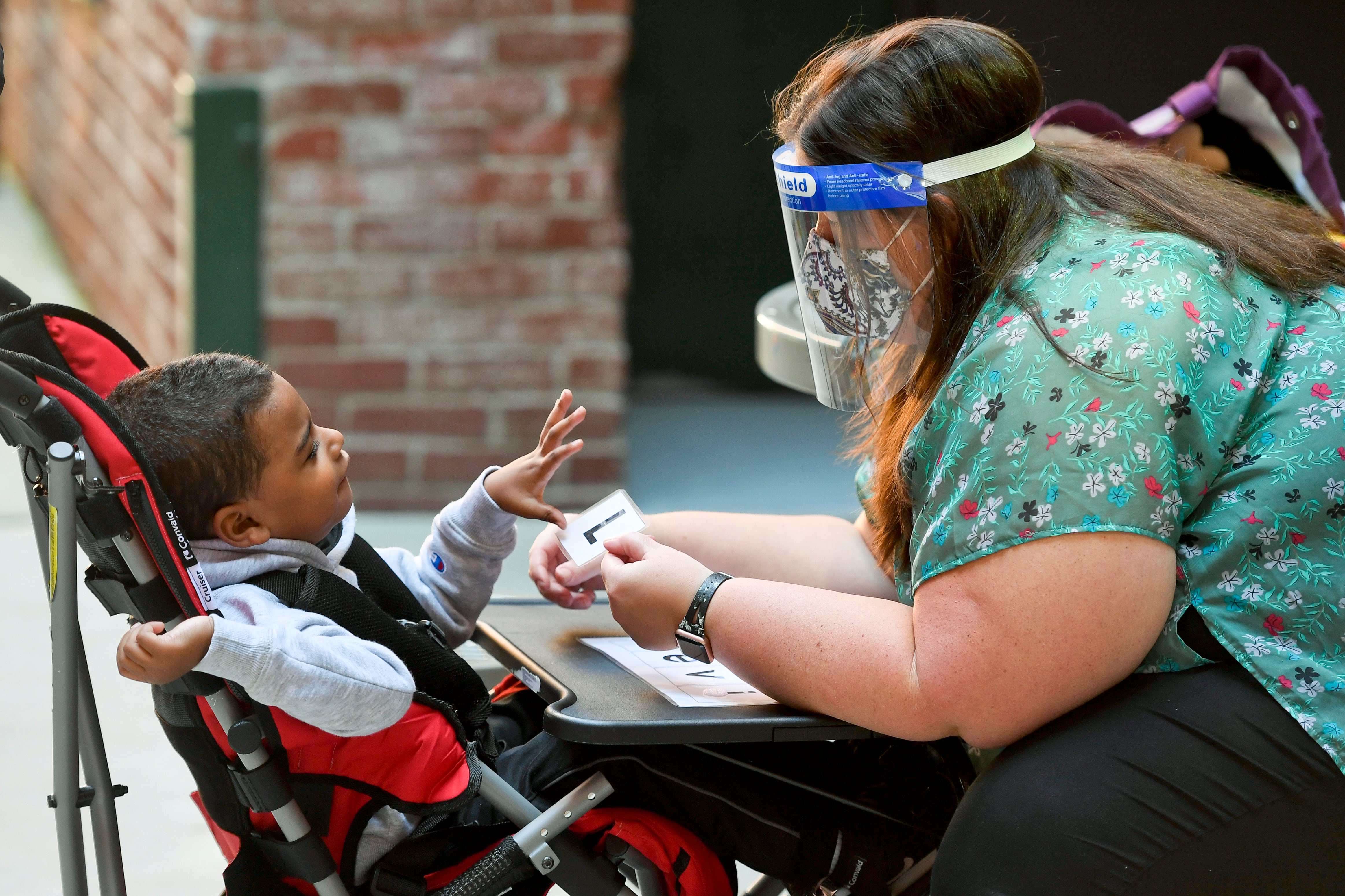Some New Jersey school districts may be violating state law around services that students with disabilities lost during the pandemic, advocates say.
Parents in some districts are being asked to write requests for meetings related to services their child missed during the pandemic or to sign documents about makeup services without having a discussion about their children’s academic gaps during that time period, the advocates say.
This runs counter to a New Jersey law that says school districts must meet with all students who received special education services between March 19, 2020, and Sept. 1, 2021, to determine if a student missed services during the pandemic and find solutions to provide them.
That’s why the New Jersey Special Education Practitioners, or NJSEP, is urging state education leaders for more oversight and intervention to ensure that school districts comply with COVID-related “compensatory education” for students with disabilities before the end of year deadline. The group is made up of more than 100 attorneys and advocates across New Jersey who represent parents, students with disabilities, and the Education Law Center in special education matters.
“I think some state oversight is important in this situation,” said Lisa Hernandez, a member of NJSEP and counsel at Smith Eibeler in Holmdel, who called for more transparency and clarity to help parents.
Parents of students with disabilities in Newark and across the state have a legal right to meet with school leaders to discuss their students’ missed services during the pandemic and ways to address the gaps in education during that time. Under the New Jersey law passed in March, school districts have until Dec. 31 to schedule Individualized Education Program, or IEP, meetings with parents of students with disabilities to discuss the pandemic-related “compensatory education.”
The special education practitioners group first sent a letter to the state’s DOE in late September to express “serious concerns” about districts that have been slow to comply with the new law. The group’s initial letter also asked the state for “detailed information on enforcement of the law,” including whether the state department of education has collected data on compliance, conducted outreach to graduated students, and provided training on the new law to administrative law judges.
Last month the group sent a second letter to the state to push for more involvement and the need to remind school districts of their legal obligations to hold meetings with parents of students with disabilities to discuss services missed due to pandemic school closures.
In April, the state department of education issued guidance informing school districts of their legal obligations under the law but the state has not taken any other measures to ensure school districts are complying or provided additional information to support school districts as they implement the new law.
The state’s department of education did not respond to Chalkbeat Newark’s questions about the group’s letter or state compensatory education oversight at the time of publishing.
Advocates say they are pushing the state to get more involved because some families are unaware of the law or their legal rights as school districts wrongfully impose additional requirements to make IEP meetings happen and discuss missed education during the pandemic.
“Some parents have no idea what’s going on,” Hernandez added. “There’s just a tremendous lack of information coming to families.”
Some parents have agreed to additional services without understanding their rights for compensatory education, Hernandez said.
“They don’t know why all of sudden they are talking about their child’s progress from a year and a half ago or a year ago. They don’t know that,” said Hernandez, who’s consulted with half a dozen parents of students with disabilities about the pandemic related compensatory education. “The point is to discuss the need or potential need for compensatory education.”
Parents can write a request to the district to meet with school officials about makeup services but ultimately, the obligation to set up those meetings before the end of the year falls on the school district even if a parent hasn’t requested it. If a school district denies a student extra services to make up for missed ones or if parents feel more should be done to address the need, New Jersey families can find help from the state by requesting a due process hearing by Sept. 1, 2023.
“Regardless of the conversations that happen by the end of this year, pursuant to the DOE guidance, families still have another nine months to decide if they want to file for due process and mediation to seek additional compensatory services for their kids for this time period,” Hernandez added.
“So, the discussion is not over.”
Compensatory education may include additional sessions per week or services provided beyond the regular school day. In 2020, the state department of education also told school districts that even if they complied with virtual services during the pandemic, make-up services might still be needed when students returned to in-person learning.
Newark Public Schools switched to remote learning in March 2020 due to school closures caused by the pandemic at which time, special education services were allowed to go virtual under a new state rule that year. Despite school districts’ obligations to students with disabilities during the pandemic, Chalkbeat Newark found that in 2020, some Newark students hadn’t received services for more than 10 days, a situation that constitutes a change in placement requiring an IEP meeting.
Jessie Gomez is a reporter for Chalkbeat Newark, covering public education in the city. Contact Jessie at jgomez@chalkbeat.org.





